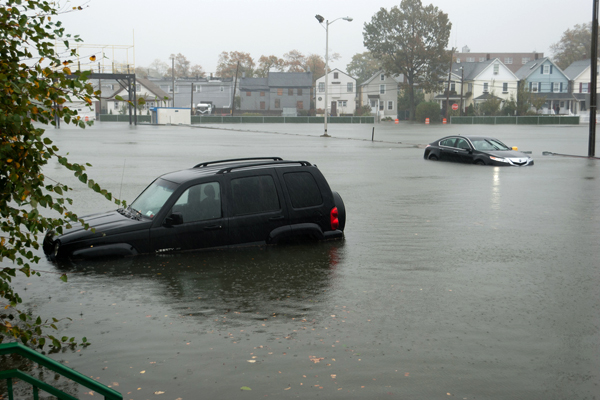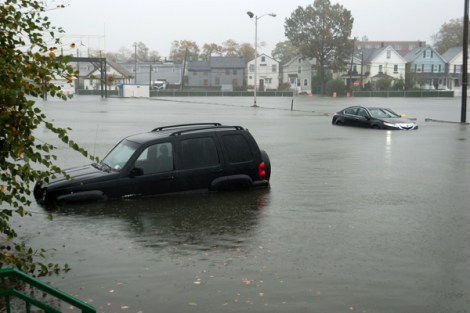In the New York Times today is a handy overview of environmental politics over the course of Obama’s first term, focused on the new, post-Sandy reality. Just getting up to speed after, like, a Rip van Winkle-sort-of thing? Read it. Well, everyone else might want to take a look, too; that’s why I’m putting up this goldurn post about it.
From “A Change in the Weather on Wall Street”, by Tina Rosenberg:
In March, 2009, the White House invited leaders of environmental organizations to a meeting. The invitees thought they were going to hear about the president’s strategy on climate change, in preparation for the United Nations Conference on Climate Change in Copenhagen in December. And they did — aides to the administration’s environmental adviser Carol Browner, its green jobs adviser Van Jones and Nancy Sutley, the head of the Council on Environmental Quality, gave out a one-page memo. The key point: don’t talk about climate change. …
Judging by the campaign, politicians, as well, still assume that the “C” word is toxic. Public belief in climate change and support for action did dip for several years, beginning in late 2008. In part, that fluctuation occurred because of people’s experience of the weather — winters were cold. And the recession made it an unreceptive time for proposals such as a carbon tax that would probably increase the price of energy and cut jobs — at least in the short term. …
[Political strategist Betsy] Taylor commissioned a national survey about climate change, and from that wrote a strategy paper for advocates of action:
- Talk about American patriotism. Americans don’t shrink from a fight. Don’t underestimate Americans and what we can do.
- Talk about the world we are leaving our children.
- Talk about the role of oil money.
Taylor says Hurricane Sandy has now added new arguments. One is that climate change is not just a threat for people elsewhere, in the future. It’s here and now. … The other new argument is economic. Until this year, the political calculus about climate change had only one side. The oil and coal companies made sure everyone knew about the costs of action. But few people mentioned the costs of inaction. Now they cannot be ignored.
Go read the whole thing. Would love to get your thoughts on the strategic political implications that Rosenberg touches on; share them in the comments. And, Rip? You can go back to sleep for another four years; we don’t need you. We finally may be figuring this thing out.
This post is part of our November 2012 theme: Post-election hangover — whither the climate?




